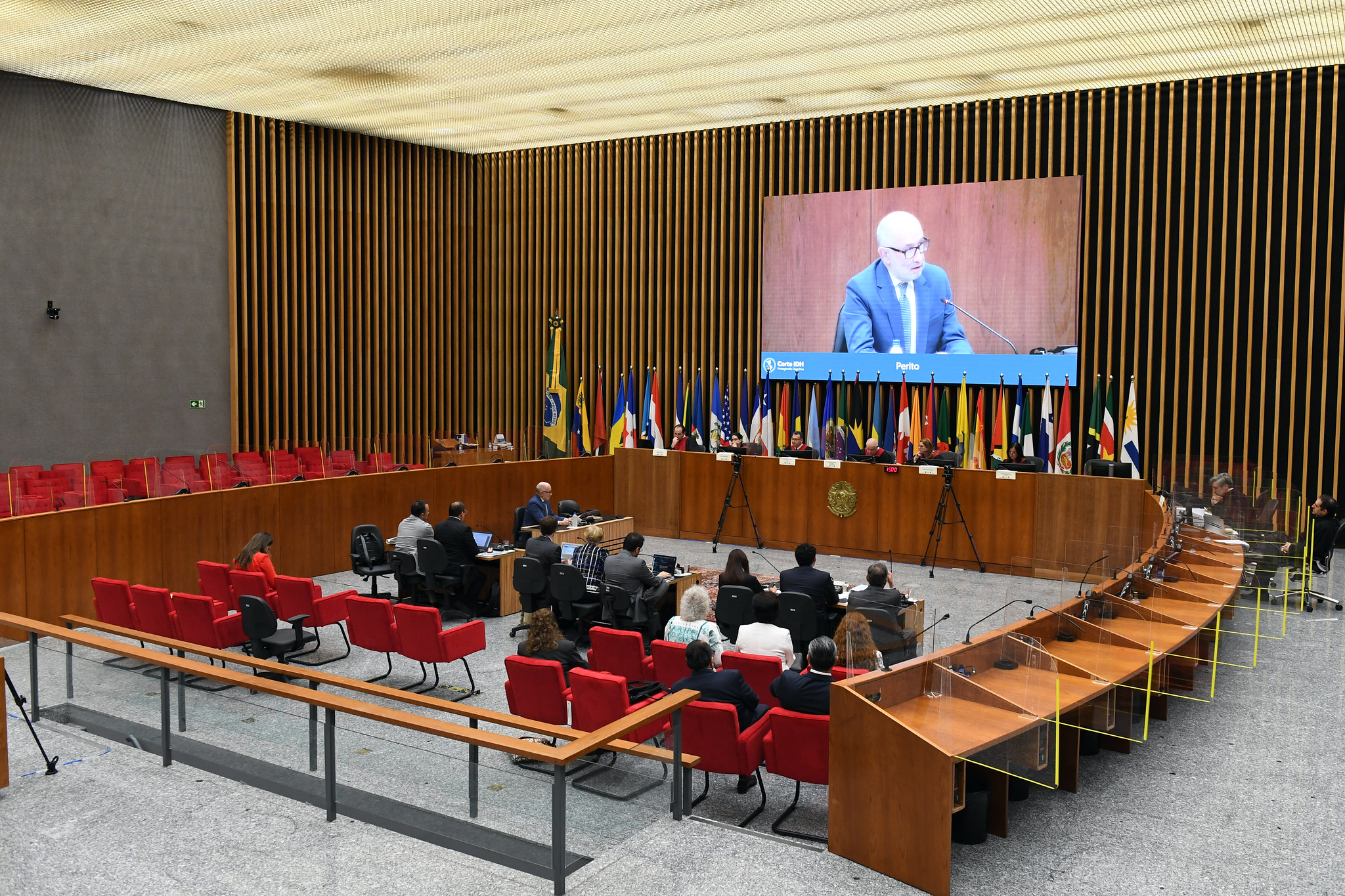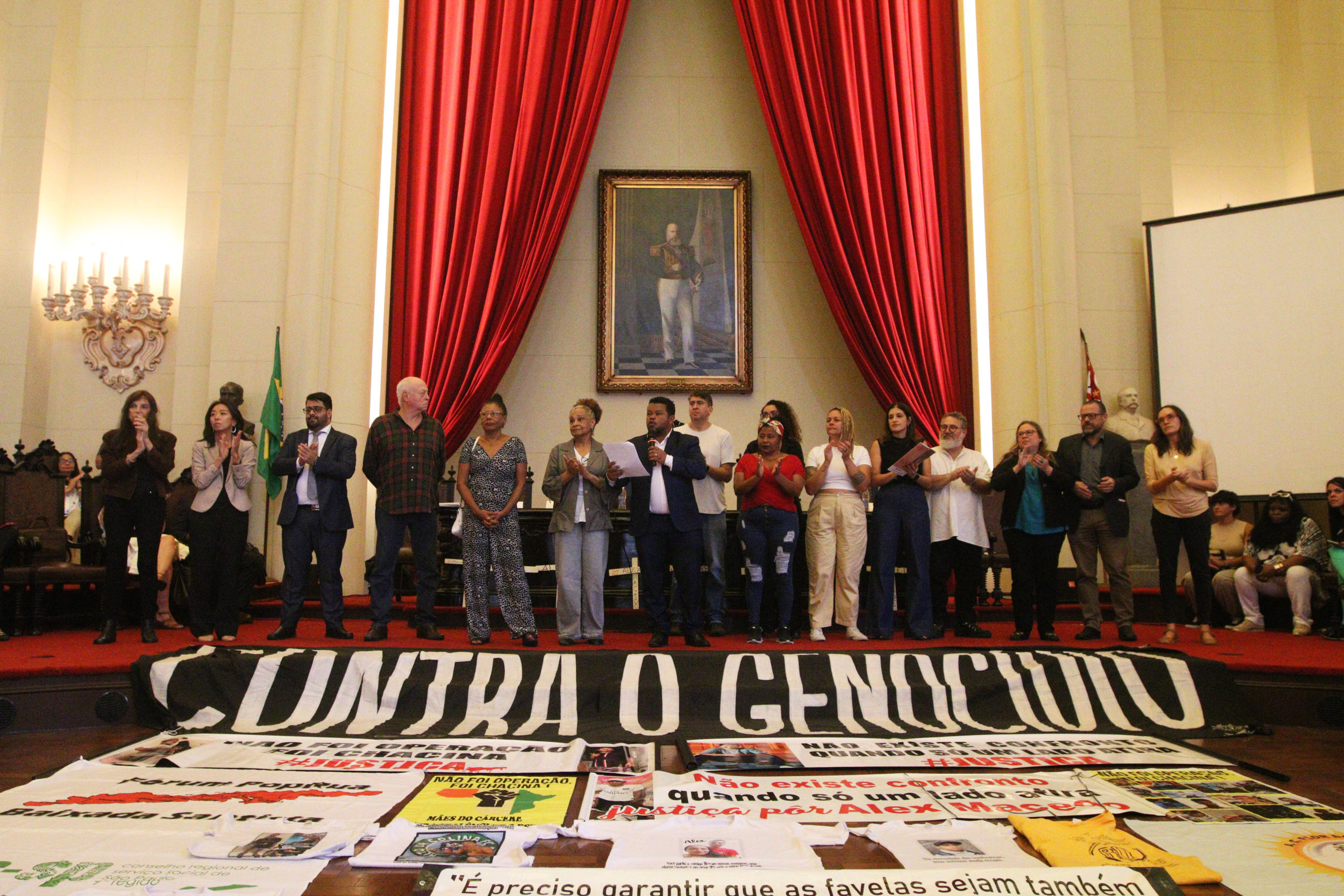Ulterior motives
Congressional Inquiry wrong in its conclusion that privatization is a solution for the prison system

The disconcerting surprise of the report lies in its conclusion about what should be done to change this situation: ignoring the arguments of jurists, unions, civil society and the CNPCP (National Criminal and Prison Policy Council), the members of Congress recommended the total or partial privatization of the system as a solution to the crisis – a model that is being applied in an increasing number of Brazilian states, even without regulation.
According to Marcos Fuchs, associate director of Conectas and member of the CNPCP, “the conclusion reveals that the members of Congress view prisoners as a commodity and the prison system as an expanding market to be explored”. “The experience in countries like the United States demonstrates that economic interests are absolutely incompatible with the goals of the prison system, which should be rehabilitation and social reintegration. After all, it would not make sense to invest in a market without also working to expand it – which, in this case, means detaining an increasing number of people. There is a clear conflict of interests.”
According to the Ministry of Justice, Brazil’s incarceration rate (the number of prisoners per 100,000 inhabitants) has increased nearly 120% since the year 2000. Of the four countries with the world’s largest prison populations (United States, China, Russia and Brazil), the Brazilian rate was the only one to rise. A 2014 report by Pastoral Carcerária, the Catholic Church’s prisoner outreach service, revealed that more than 20,000 prisoners in seven states are serving sentences in privatized prisons.
In the interview below, Fuchs explains why, contrary to the claims of the Commission, the expansion of this model is detrimental to Brazil’s prison policy.
1. In practice, what does it mean to privatize a prison?
Currently, there are several forms and different degrees of privatization in the prison system. It occurs when the State delegates to a private company one or more services, which can range from cleaning and catering to the construction and administration of a prison, including security and medical services. There are even cases of privatization of legal services – i.e. the lawyer that handles a prisoner’s case is contracted by the same company that runs the prison, in a clear conflict of interests.
2. Why is it a mistake to defend privatization, like the Commission’s report does?
First, because this conclusion reveals that the members of Congress view prisoners as a commodity and the prison system as an expanding market to be explored. That’s not how it should work. The experience in countries like the United States demonstrates that economic interests are absolutely incompatible with the goals of the prison system, which should be rehabilitation and social reintegration. After all, it wouldn’t make sense to invest in a market without also working to expand it – which, in this case, means detaining an increasing number of people. There is a clear conflict of interests.
3. But the members of Congress affirmed that privatization is cheaper and more efficient.
We also need to refute these economic arguments. The numbers used in the report by the members of Congress come from just one source, Abesp (Brazilian Association of Companies Specialized in the Provision of Services to Prisons). There is no empirical evidence showing that privatization costs taxpayers less. Indeed, there are numerous examples suggesting just the opposite. Paraná, the first state to adopt privatization in the prison system, has already backtracked and retaken control of all its prisons. The United Kingdom has abolished this model and Germany has banned it. A study by the United States Department of Justice was emphatic in its assertion that the cost savings promised by the companies and by the authorities never materialized.
4. What about in terms of detention conditions? Are private prisons better than public ones?
To make this comparison, it would be necessary to start with what they have in common, which is impossible because private prisons benefit from the ability to not hold more people than established by contract and also to choose the type of prisoners they want to receive. Private prisons operate in a very different, quite privileged reality. It should also be noted that the funding for the private system is greater than for the public system, as the Commission’s own report shows. What would the conditions be like in public prisons if the investment by the State were the same?
Meanwhile, it is not uncommon to have crisis situations in prisons where many of the services are privatized. One tragic example is the case of Pedrinhas prison, in Maranhão, where practically all the security is outsourced. These people earn much less and receive less training, and sometimes they don’t even know when they are hired that they will be dealing directly with prisoners.


